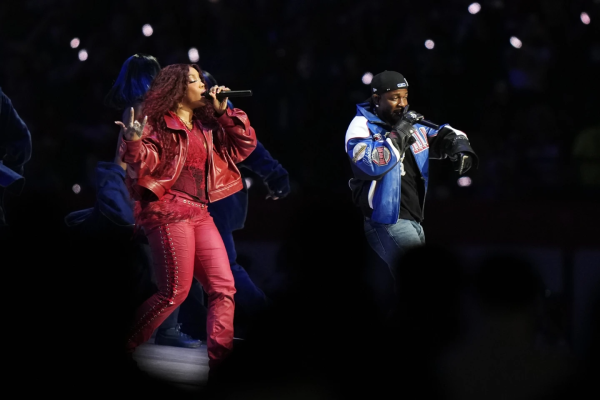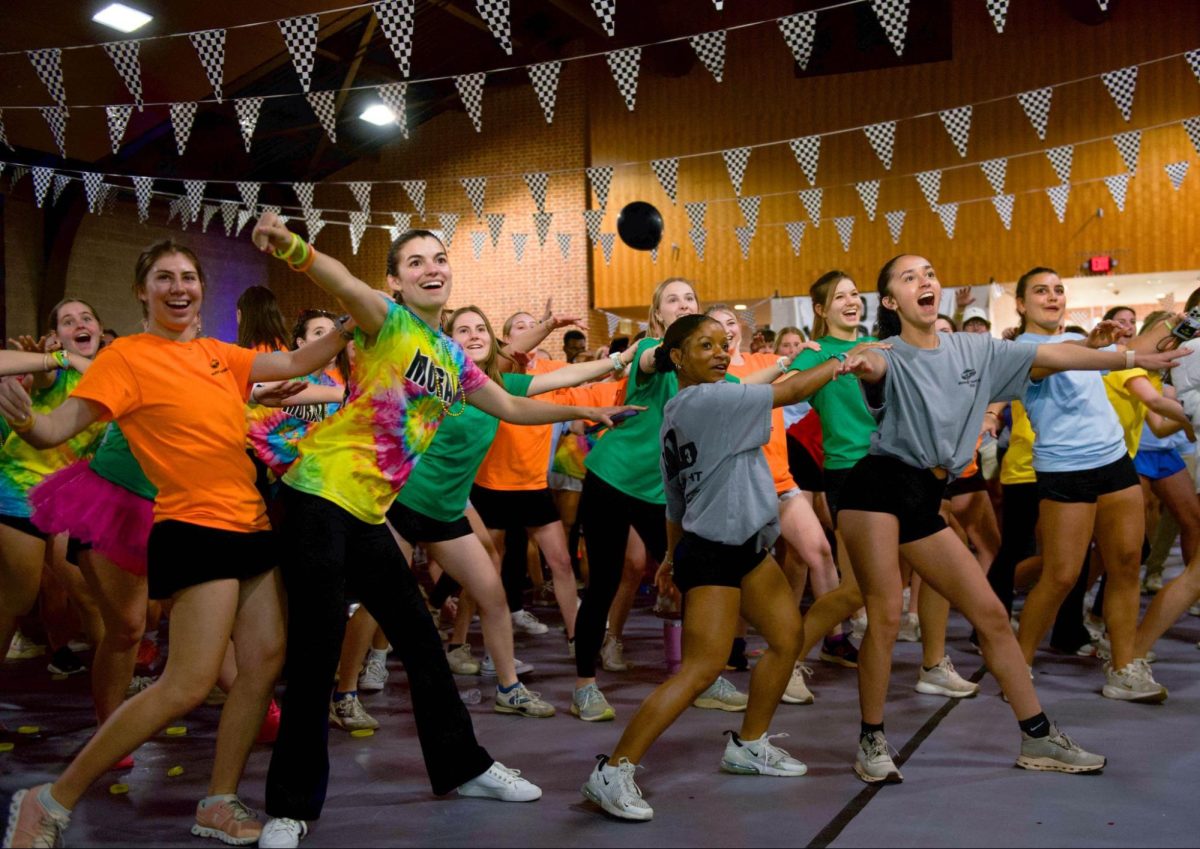“The revolution’s about to be televised. You picked the right time but the wrong guy.” With these words, Pulitzer Prize winner Kendrick Lamar began the most layered and politically charged Super Bowl halftime show in American history.
Though this performance provided sharp commentary on racism, the fickle American audience, the entertainment industry and America’s division, many dismissed it as the end of Lamar’s rap battle with Drake.
Lamar’s performance was more than just entertainment — it was a bold statement on the current atmosphere in America. The question is: were you watching closely enough?
Challenging America’s Game
Lamar’s performance opens with a cameo by Samuel L. Jackson, a famous Black American actor, dressed in a red, white and blue suit. He introduces himself as “Uncle Sam,” a play on his name and a reference to the national personification of the United States. Jackson welcomes the audience, saying, “This is the Great American Game” — referencing both the game of football and the stage layout of a game controller. The stage layout frames Lamar’s performance as a game. Lamar positions himself as the one being controlled and the audience as the ones controlling him.
Lamar begins on top of a Buick GNX and says the famous line: “The revolution’s about to be televised. You picked the right time but the wrong guy.”
These words reference Gil Scott Heron’s 1971 song “The Revolution Will Not Be Televised” where Heron, a Black American poet and singer, urges his audience not to be passive bystanders in a revolution but instead fight for justice. Lamar’s inversion of Heron’s lyric suggests that he believes that everything — even a revolution — has been reduced to its entertainment value.
Lamar’s claim that the American people have “picked the right time” but “the wrong guy” could have a multitude of meanings. The “right time” may refer to the Superbowl performance itself. However, “the wrong guy” may refer to Lamar himself as people are expecting to be mindlessly entertained, but Lamar instead offers a powerful commentary on society.
A Nation Divided
Lamar then performs his song “Squabble Up,” a call to action that encourages resilience and fighting back. Jackson interrupts his song, claiming that it is “too loud, too reckless, too ghetto.”
“Too loud” and “too reckless” propose that Lamar’s defiant message in his opening song unsettles the audience by challenging the status quo. “Too ghetto” carries historical weight since it reflects how systemic racism, segregation and economic barriers have confined Black Americans to certain areas. Jackson shows how American people often devalue music made by Black artists if they do not conform to white musical norms.
Lamar opens his next song “HUMBLE” with a powerful image. The dancers dressed in red, white and blue recreate the American flag with a divide in which Kendrick Lamar stands alone. The split down the middle of the flag represents how American society has become more and more polarized in politics, culture and racial tensions.
When “Euphoria” played — one of the songs Lamar wrote about Drake — lights in the stands spell out “Warning: Wrong Way.” Lamar may be referencing how he is not supposed to perform songs about Drake on television because that could result in a defamation lawsuit. An alternative interpretation is that American society is progressing in the wrong direction.
Next, Lamar performs “Man at the Garden” while male Black dancers snap behind him. Jackson says, “Oh you brought your homeboys with you, the old cultural cheat code. Scorekeeper, deduct one life,” implying that society often judges and feels threatened by a strong Black community.
Crowd Pleasers
Kendrick then performs two of his more calm, famous songs, “Luther” and “All the Stars,” which both feature SZA. Jackson comments, “That’s what I’m talking about. That’s what America wants. Nice and calm.”

However, Jackson is interrupted when “Not Like Us,” Lamar’s Grammy-winning diss track, begins to play. Jackson, exasperated, leaves the screen. Lamar’s decision to play this song at the Superbowl — even though, as he states earlier in the performance, “You know they love to sue” — shows an open rebellion.
Lamar’s statement “40 acres and a mule. This is bigger than the music” is referencing the unfulfilled promise of reparations made to formerly enslaved people after the Civil War. Lamar voices that this performance is not just about entertaining people; it is about making a powerful statement on the way Black people are treated in the United States.
Lamar boldly addresses Drake in the song. Serena Williams briefly appears crip walking. This cameo is both a dig at Drake, as they were rumored to have a relationship in 2011, and a statement on how Black culture is policed, perhaps a callback to when Williams received backlash after she did the crip walk following her victory against Maria Sharapova at Wimbledon in 2012.
Lamar ends his set with his song “tv off,” perhaps urging Americans to disconnect from distractions and instead focus on issues like those he presented. After the stands light up with the words “Game Over,”.
Though the spectacle may be over, the implication is that the real work — the revolution — has just begun.
In my opinion, Lamar’s performance came at the right time and with the right guy.
He turned the Halftime stage into a national platform for protest, confronting America with the uncomfortable truths of its political and societal tensions. His message about America’s division and the devaluation of Black art was a statement that needed to be made. Lamar reminded America that art is about more than entertainment; it is meant to disturb the comfortable, reveal contradictions and provoke action.










